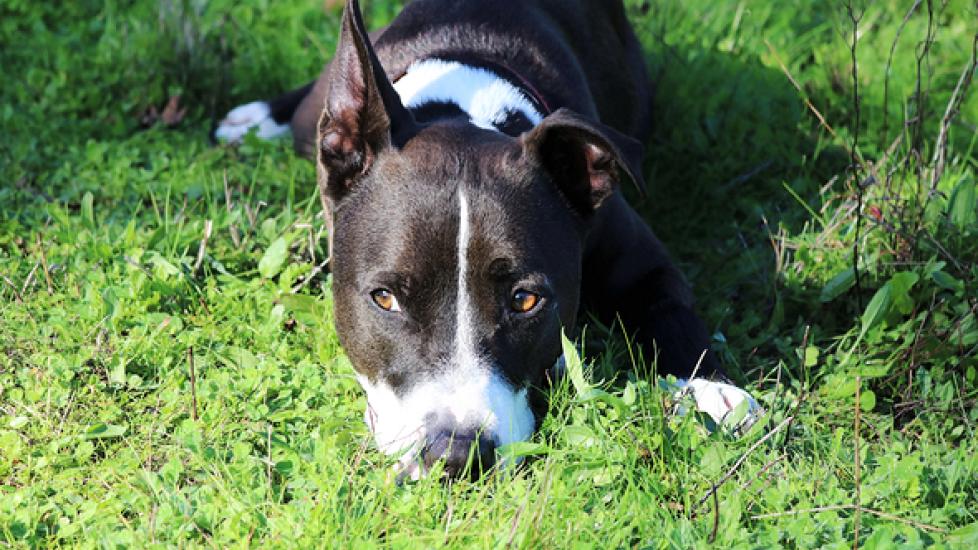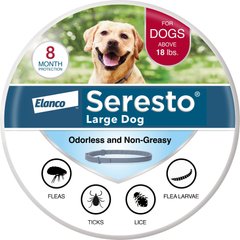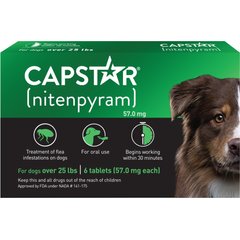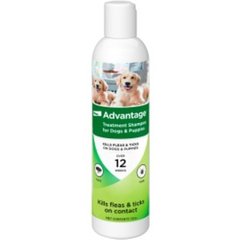Ant Bites on Dogs: How to Identify and Treat
While parasites like fleas and ticks are well-known hazards, there are plenty of other bugs that can bite and sting our pets.
Bees, wasps, biting flies, ants, spiders, and scorpions all pose serious risks for our pets. Allergic reactions have a range of reactions, including pain, swelling, and more serious breathing and anaphylactic complications.
Depending on the species, ants are capable of stinging or biting (or both), and the results can range from annoying to potentially life-threatening. Luckily, owners and veterinarians have many options when it comes to treating ant bites and stings.
Identifying Ant Bites on Dogs
While dogs are vulnerable to ant bites and stings anywhere on the body, the fact that they’re on their feet and lead with their noses makes those two areas prime targets. Injuries to the nose and face can be particularly problematic, as swelling here can lead to closing of the airways, difficulty breathing, and eventually more serious problems.
Not every ant bite or sting is cause for a trip to the vet, but it may be required, depending upon how your dog reacts to the venom.
Symptoms of ant bites and stings might include (bullet points) lameness, hives, chewing or licking at the affected area, swelling, vocalizing/whining, and the inability to settle. In anaphylactic reactions, a dog might suffer from (bullets) vomiting, weakness, respiratory distress, pale gums, and collapse.
Ant bites on the legs or on the body may appear as red and raised sores, sometimes with white pus-like material, but you might be unable to see them through thick fur.
Of particular concern, however, are fire ants, a nasty and invasive species originally found in the South and Southwest but have migrated to other areas of the country. Fire ants are venomous insects that both bite and sting, causing intense pain and swelling. Anaphylactic reactions are common with fire ant bites, even with relatively few actual insects. Large numbers of fire ants can attack as a group, using coordinated stings for more impact. These types of injuries are potentially deadly for pets.
Vet Recommended Parasite Control
- Seresto Flea & Tick Collar for Dogs, over 18-lbs, 1 Collar (8-mos. supply)$59.98Chewy Price
- Capstar Flea Oral Treatment for Dogs, over 25 lbs, 6 Tablets$39.98Chewy Price
- Advantage Yard & Premise Spray, 32-fl oz hose-end spray$21.98Chewy Price
- Advantage Flea & Tick Treatment Shampoo for Dogs & Puppies, 12-fl oz bottle$19.48Chewy Price
Treating Ant Bites on Dogs
It is important to check for more ants on your dog after an ant bite attack, especially in hard-to-reach areas such as between the toes, ears, eyes. However, remember that fire ants are much more aggressive. If your dog has been attacked by fire ants, move your dog to a safe area, use a pair of gloves to protect yourself, and then brush or pick any remaining fire ants off your dog.
After you're removed the ants, monitor your dog’s overall well-being and call your veterinarian. Talk to your veterinarian to determine if using the drug Benadryl, or diphenhydramine, is appropriate for your pet and about specific dosing information. If you are seeing any signs of an anaphylactic reaction (i.e. vomiting, collapse, weakness, respiratory distress, or pale gums), immediately take your dog to the nearest veterinary emergency hospital.
Just like in people, some dogs are more sensitive and can have a greater response to ant bites and stings. Should your dog’s symptoms become worrisome, contact your veterinarian for additional advice and treatment. Dogs suffering from serious anaphylactic reactions may be admitted to the hospital for supportive care. Others may require prescription medications to address potential infection from the stings and inflammation.
While commercial human insect repellents aren’t recommended for dogs, there are some natural substances that can be used if your dog is going to be spending a lot of time outside. The oil form of citronella, lemongrass, and cinnamon can all be applied as an insect repellent, but first talk to your veterinarian to see if these are a good fit for your dog.
There are also other pet-specific insect repellents on the market, but they don’t guarantee that your dog won’t be bitten or stung. In the end, your best option is to keep an eye on your dogs when they are outside, steer them away from locations that are obviously infested with ants, and act quickly if you notice a problem.




